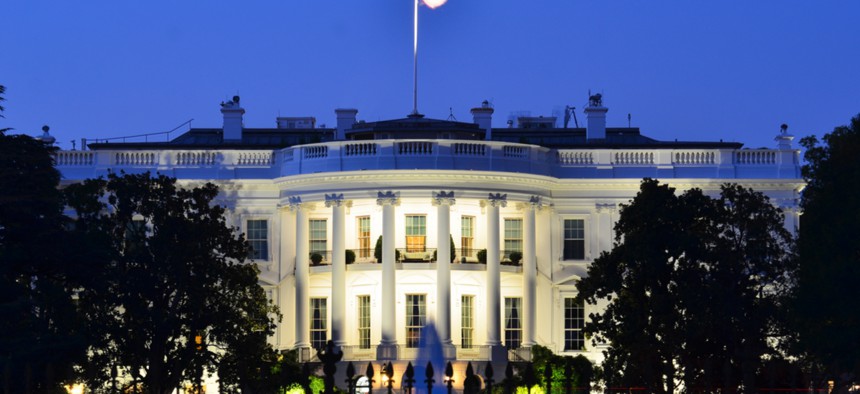White House Expects to Hold Steady on Tech Policies Despite House Flip

Orhan Cam/Shutterstock.com
But House Democrats plan to fight for online privacy, net neutrality regulations.
Top White House advisers on Thursday said the administration will continue its approach to federal IT modernization and minimal tech regulation despite Democrats taking control of the House in Tuesday’s midterms.
But on Capitol Hill, Democratic leaders are gearing up to fight for measures that directly clash with the White House’s hands-off approach to the tech industry.
Chris Liddell, the White House deputy chief of staff for policy coordination, sees the Trump administration’s tech priorities falling largely into two buckets: modernizing federal IT and driving U.S. innovation.
Efforts to improve government tech typically enjoy bipartisan support, he said, so it’s unlikely changing leadership in the House will hamper those initiatives. And when it comes to advancing fields like artificial intelligence and quantum computing, administration officials will continue funding research and development efforts and pushing for less regulation for the tech industry.
“That really doesn’t change as a result of Tuesday,” Liddell said during a panel hosted by the Washington Post. “From my point of view in the technology space, it’s very much business as normal. Everything that we’ve done in the last two years will continue.”
The administration officials argue that regulating tech companies would stifle innovation and give global competitors like China a leg up in emerging industries. While Liddell noted it’s important to protect people against the potential pitfalls of new technology, “our natural instinct is how can we help companies grow?"
However, House Democrats are making protecting consumers’ privacy from powerful tech companies one of the central aspects of their agenda.
At the event, Rep. Ro Khanna, D-Calif., said lawmakers need to make sure consumers have ownership of their personal data when they go online, and he anticipates the debate over personal privacy to grow louder in the coming years. House Energy and Commerce Committee Ranking Member Frank Pallone, D-N.J., on Thursday listed privacy and data security among the group’s probable top priorities going forward.
The White House has already made it clear they’d be willing to work with Congress on privacy regulation as long as “certain parameters” are included, according to Abigail Slater, a special assistant to the president on tech issues. Panelists wouldn’t disclose whether the administration is proactively drafting legislation, so it remains unclear what those parameters would be.
Khanna, one of Capitol Hill’s most outspoken online rights advocates, said regulators must take a “thoughtful, balanced approach” when addressing the tech sector. Lawmakers need to recognize the tools themselves can make significant positive impacts on society, but only if they’re used responsibly.
“By and large I think technology is going to advance our nation and our world, but we have to … regulat[e] it in a way that reflects our democratic values,” he said.
In addition to increasing tech sector oversight, Democrats also want to expand internet access to more Americans and retrain the workforce for new jobs created by the digital economy, according to Khanna. Democrats also will work to reinstate net neutrality regulations, which the Federal Communications Commission repealed in December, he said.
Beyond general tech policy, the Democratic takeover of the House could also significantly shake up congressional oversight of federal IT modernization and contracting. New leaders of the House Oversight committee have the power to reorganize subcommittees and alter the watchdog group’s priorities, but those changes likely won’t play out until early next year.
NEXT STORY: How the Midterms Shake Up Tech Oversight






